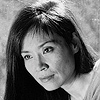Born in Shanghai in 1957, Anchee Min endured extreme poverty and hardship as a victim of Mao Tse-tung’s Cultural Revolution. At age 17, she was sent to a collective labor camp, where, unexpectedly, she was recruited to work as an actress for propaganda films. After Chairman Mao’s death, she worked in menial jobs for years before escaping to the United States in 1984. She settled in Chicago, eventually writing about her experiences in a 1994 memoir, Red Azalea, which becamean international bestseller. Other books followed, including Becoming Madame Mao (2000), Wild Ginger (2002), and in 2004, Empress Orchid, Min’s fictionalized account of the resilient, shrewd ruler of China during the calamitous Ch’ing dynasty. Her anticipated sequel, The Last Empress, was set for release in March. Victoria Lautman interviewed Min, who spoke by phone from her home in Northern California.
|
|
Q: Empress Orchid, otherwise known as Tzu Hsi, morphed from a poor country bumpkin, to imperial concubine, to empress of China from 1856 to 1908: talk about a learning curve! All that, just to be branded an “evil mastermind” and “enemy of the human race. . . .”
A: Yes. There have been 50 or 60 books written about Empress Orchid, but none of them bothered to really examine the period in China when she lived. I was taught that she was evil; it’s in all the textbooks. But she was really captain of a sinking ship, blamed for not “saving China” during the most difficult time in Chinese history, when there were invasions from 13 nations, and many rebellions.
Q: So why not just stuff everything together into one volume rather than two separate books?
A: I always planned to have both. In the first book, Empress Orchid, you get to know Lady Yehonala and her background. Then in The Last Empress, you get interested in what happened during her regime, seeing her as a mature woman who dealt with so much. The second book is personally more important to me. It’s the story of a woman leader at a time when women were despised. She was also a mother, a lover, a commander in chief, and, above all, a survivor.
Q: Among the many fascinating tidbits you unearth are the interactions with the palace eunuchs. Orchid’s favorite, An-te-hai, saved money to buy back his amputated penis. Where’d you dig that out?
A: There’s a lot of information about the eunuchs and their history, and I found a lot from the denunciations written by adopted children and grandchildren of these men. The only way for these heirs to survive was to fill out forms denouncing them as remnants of the bourgeois, feudalistic past. There are details about how they got castrated and abused, how they earned money and became powerful, and what they spent their money on. It’s like a combination of medical book and lifestyle journal.
Q: Your own journey led you from poverty and obscurity during the Cultural Revolution to the School of the Art Institute in Chicago. That must have been a culture shock in itself.
A: Chicago was the only city in America that accepted me at first. [It] is crucial to my American experience, since my daughter was born there. But I was guilty of lying on the school application, which a friend filled out for me, and listed my English as “excellent.” Once I arrived in Chicago, I had to learn English in three months or risk being deported, so I watched Sesame Street, Mister Rogers, and Oprah Winfrey to educate myself. My dream was to become an office secretary; I had no intention of being an artist, but needed time to establish myself. I, too, was a survivor, and every day, I realized that if I were in China, I would be dead.
Critical Mass
Noteworthy new releases for March
|
|
THE CARDIO-FREE DIET
(Simon Spotlight Entertainment)
Fitness guru Jim Karas bans cardio in lieu of all-strength-training regimens. Fear a muscle-magazine bod? “Strength training helps women shrink,” he writes.
|
|
SLIM: A FANTASY MEMOIR
(Rizzoli)
Art Institute grad Cynthia Rowley mixes whimsical sketches with fact and fiction to recount tales fromher childhood through her early days as a fashion designer.
|
|
BLACK POMPADOUR
(Thrill Jockey)
Brit-born James Elkington of The Zincs doles out dark wit in a gravelly baritone on songs like “Head East, Kaspar”: He’s as bitter as a nun, drenched in wine, dressed in neon.”
|
|
WE’LL NEVER TURN BACK
(Anti-)
Chicago’s gospel/soul heritage is personified in Mavis Staples, who teamed up with Ry Cooder and South African choir Ladysmith Black Mambazo for a Southern roots album hat scorches and soars.
Photography: Lautman – Marc Hauser, Lamott – Jonathan Ernst








